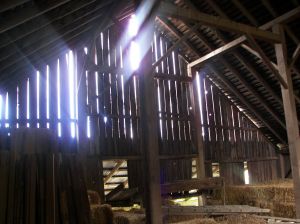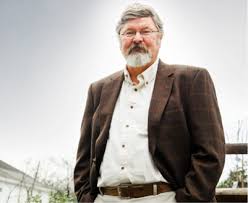They say that funerals are for the living, which of course they are. The deceased, now lifeless, causes us to reflect upon their life as well as our own which remains for the moment, steadfastly ticking. This relentless winter is finally thawing ever so slowly and with the receding snow cover, the ground awakens into mud season with sap dripping into buckets on trees. This winter has cost us. My own winter was spiced by a stint in the local cardiac ward flanked by a burglary at both the office in town and one attempted at home. Unlocked doors in the bucolic countryside are no longer a minor comfort of mine. To their credit, the thieves forced me from the cussed internets for a time and this service to mankind and myself should be celebrated. It was, to be sure, a winter of discontent. The worst affront of all was a realization that nurses no longer wear white stockings. As if that was not a significant enough insult to the art of healing, in a cruel demonstration of even greater depravity, nurses now apparently even include hirsute Pakistani males. Apparently, they call this “progress”. One becomes staggered by a realization that Health Care is not so much concerned with health as it is with keeping you alive for a series of sadistically high-priced serial insults, not least of which is the food. If you would like a bumper sticker declaring “I Survived Health Care”, please send three ducats to P.O. Box…but I digress.
One of the bitterest losses however, has come in the form of collapsed barns destroyed by relentlessly accumulating snow amid consistently cold temperatures. If one needed a proper demonstration of the misnomer that the term “Global Warming” is, this winter provided it in spades. A putative “warming” is the least of our problems. Climatic chaos will run roughshod over any benevolent warming we might enjoy. Derelict barns seem to be on the front line of the damage we are about to endure. Driving about in any direction, one can spy another relic of the New England Family Farm finally given out under the combined weight of abandonment and deep snow loads.
Sometimes these barns were long listing and vacant so their collapse is of little import aside from the insistent finality of their departure. The antique timber merchants will pluck them with alacrity and a Chestnut beam that once protected a robust Holstein matron might now grace a Master Suite. Unfortunately, some of the barns contained livestock that sometimes survived but sometimes perished with the old relic housing them. In more than a few instances, the fallen barn destroyed a truck or two or perhaps a treasured old Farmall tractor or maybe a vintage Morgan with its handcrafted oaken frame and gutsy drive train. In at least one instance, a plane was flattened under the debris.
This is a bitter pill to swallow because New England, though still distinctive, is rapidly becoming either a combination of urban blight with a side of suburban flight or a kind of scenic theme park for the weekending swells inhabiting the Yankees to Red Sox axis. These collapsed barns underscore the inexorable and thoroughly wrong-headed changes afoot.
The residents of the first Thirteen Colonies knew Connecticut as the “Provisions State”. She was a first class entrepot. Both manufacturing and farming hummed like the dickens and her prosperous and well-ordered towns either nestled in her hollows or crowned her hilltops within a corrugated landscape that would cover ten times the ground she seems to occupy on a map if she were stretched out flat. Connecticut’s small size never limited her contribution. Her farms and businesses produced both great minds and humble citizens and she became known for being of steady habit. One of these steady habits might be a system of roadways that would embarrass the third world but these snaking and pot-holed roadways also tell an endless story of human habitation within this remarkable Republic.
Our many remaining barns are a steady reminder of this fecund and endlessly alluring province. She still charms mightily. From the rocky shorefront of Long Island Sound with its harbors still studded with sailing masts to the rich farmlands of the Connecticut River Valley and the scenic Litchfield Hills or that quiet corner of the northeast nearer Boston, one can travel far and wide and come back to this quietly bountiful place re-convinced of its subtly effulgent elegance. These collapsed barns will be sorely missed. A certain and peculiarly New England memory will depart with them.
It is spring again however and though the airwaves abound in a pitched degree of pathos seldom exceeded, residents of New England need only go out into the chill yet brightening sunlight in order to lay witness to one of the greatest symphonies on a symphonic planet. The forested hillsides are clothed in trees whose buds are swelling fat and casting a marvelous hue of mauve and grey over ochre and gold fields set off by the bright blue skies around a sun returning northward. We may extol the fall foliage extravaganza but this fleeting period of mauve and gold remains for me one of my home’s most significant treasures. Though floods have wreaked havoc, the streams swollen with snowmelt and high groundwater add their own pleasant roar to augment the calls of Turkeys in mating regalia or Coyotes crooning at a historically close full moon. Neo-tropical birds are returning and just the other day, as the snow still stubbornly lay underfoot, I came upon a flock of six Bluebirds nervously flitting about a Hemlock hedgerow in clear displeasure at their decision to leave Maryland during an anomalous warm day. The Pleated Woodpeckers are chortling away again and soon enough, the Woodcock will be whistling in their spiral dances of flight. Life amongst our fellow beings is indeed an un-payable debt.
This elegy for fallen barns is one of great sadness but as is always the case in New England, spring portends a rebirth. The monumental energy of so much biomass re-awakening and counterpointing the furious glow of the sun now high in the sky calls out in a scherzo to brighten our moods after the winter adagio. We are prompted from our somnolence and readied for the busy allegro of summer’s season of action.
I will miss these barns and their elegiac quality. To stand inside a barn, particularly a tobacco barn on a summer day, when beams of light streak through the various holes and cracks is to be treated to a jazz essay on light worthy of Mingus. The smell of shit, hay or Nicotiana only adds to the contrapuntal richness. These farmyard chapels remind me that I still wait for the day we defrauded citizens re-awaken to the importance of such a thing called a “Provisions State”. When we once again center ourselves upon the importance of productivity for all communities, large and small, here as well as “there”, we might merit the appellation of “culture” without arching an eyebrow in doubt or clucking a tongue in consigned regret. Nature always reminds us of what works and the grace involved in repetition. She is imperious and not infrequently destructive but she spreads life in her prodigious wake while never shying away from the redemption inherent to death. Each spring is another chance, another chapter in reconciling man’s urges to escape nature with his long experience as part of it. Soon, out west beyond the line where hardwoods give way to a swaying sea of grass, someone like me might watch the ocean of green come alive and proffer thanks for the good fortune of being in the moment on this good earth. So too will it happen farther out west, perhaps in Nevada where those great sailing mountain ranges adrift on ocean swells of sagebrush serve up a smell of sage that would make a Corsican go misty eyed.
For now though, here in this rocky little redoubt of enfolding hills, the sap is rising and it will be sweet. Sundresses will soon reappear. The barns have served us well. We owe them much more than they received. Their increasing absence diminishes us all. We are a productive nation occupying one of the most productive pieces of real estate on this planet; it is time to start plowing an American furrow again. Collapse ain’t just a concept. Unkempt barns fall no less easily than unkempt Republics.





12 comments
D.W. Sabin
Gorentz,
I’ve dipped into your bike-travelogues from time to time and enjoy them. As much as I might sick my Rat Terrier-Whippet mix on the local gangs of spandex clad road-hoggers, I know that the physics-enforced slower speed enforced upon the biker means they see an awful lot….as long as they are really looking. The ones that go by my place have to look….for the dog who is fast as hell. Thanks for the links.
Well Lindley, I have no proper defense for your remonstrance . That journey through Dante’s rings may be more interesting than life itself, of this we can only hope. Life itself is an exceedingly precious benediction but to ponder on the various travails of purgatory would seem to indicate that at death, we who are lucky enough…or judicious and reverent enough are but still, babes in the wood on the road toward true glory.
Dwight Lindley
A beautiful piece.
I have only one quibble, and it’s with your first sentence, Mr. Sabin: as far as I can tell, Protestant funerals really do happen for the sake of the living, but that’s not the case with Catholic and Orthodox rites, the whole thing happens for the sake of the deceased; its importance for those looking on is only of secondary importance. The doctrine of purgatory, or of some intermediate state after death in which we are sanctified or divinized, seems to make all the difference: you gather to pray for the guy who dies when you think he’s still got a ways to go before Heaven.
I’m not sure what this has to do with farm buildings, but there it is.
John Gorentz
Mr. Sabin, I would like one of your bumper stickers, preferably with your signature, dated and renewed annually.
Unlike people who merely complain about the loss of old barns, I do something about it. I get out on my bicycle and enjoy them while they last.
Lots of my photos are of old barns. The year before last, I stopped at one near Nottawasepe Prairie that I had ridden by many times over the years, thinking that it might not last forever, even though it wasn’t sagging or leaning. The light wasn’t the greatest, but I took photos anyway. Last year when I rode past I saw it had been burned down — intentionally, it appeared. Well, it was right next to the road, so I suppose it may have been a liability hazard. Still, it is now sad to go past and remember what had been there.
http://www.spokesrider.com/2010/04/21/empty-spot-where-a-barn-used-to-be/
The above link has the photo I took. Below is one about another old barn that is special to me. Each time I get out my camera, my uncle says, “That old barn? You want pictures of that thing?” Well, I remember back in the 50s when he and his brother built the “newer” addition on it. And my father remembers the days before either part was built — when a log barn stood on the spot. I like the place. But I usually just explain that yes, now that I’m getting older myself I tend to like taking photos of old things. It would be too hard to explain all the things that Mr. Sabin knows about the value of old barns.
http://www.spokesrider.com/2009/09/16/largemouth-bass-and-threshers/
D.W. Sabin
Mr. Berg,
Some of the friendliest people I ever met were perched upon a tall hillside exceeding the angle of repose.
A Director of Human Resources (is there a more ridiculous job-name than this?) should never be used as a proper gauge for sizing up the residents of any region. Corporatism has become accepted as a one-size-fits-all efficiency when it is really simply interested in beating the breadth of humanity into a dutiful square peg to be hammered quickly into a round hole.
Connecticut is the original “flyover country”…seems it might have been the most enduring thing it might have exported to the Western Reserve or points farther out there.
Steve Berg
For several years back in the Greed Filled 1980s, I was living out in the Connecticut River Valley area of the Peoples’ Democratic Republic of Marxachusetts. I was working in the high-tech arena in those long ago days. We used to tease the HR lady who recruited us Midwesterners there, by joking about the various state mottoes from the area. New York was the Empire State, Vermont was the Green Mountain State, New Hampshire was either Free or Dead, Connecticut was the Constitution State, and Marxachusetts was the Police State. They only had license plates on the rear of the cars there because there was always a cop or other revenue collecting state agent looking over your shoulder. Why put plates on the front of the car under those circumstances. To counter this, and since we did a lot of work with high frequency radar, most of the cars in our lot were equipped with enough radar and laser countermeasures equipment to make an F-111 jealous.
The adventure out there happily came to an end, and I could joyously return to my roots here in Flyover Country. I may ride one of the motorcycles out there to visit some friends in Keene in the next few years, but am very glad to be back where the people are friendly, and the land is flat.
Rob G
Didn’t Wendell Berry say somewhere that an abandoned farm is the saddest thing in the world? Your piece captures very well that sentiment and all it entails, Mr. Sabin. Kudos.
D.W. Sabin
Hunter,
Shakespeare’s dim brother Vinnie perhaps. Obliged.
Ms. Dalton,
The “Nutmegger” appellation is the perfect moniker for this never-never land lost between La Republica de Massachusetts and the City State of New Yawk (Burnt over District notwithstanding, they have their own problems). What , hell’s sakes is a “Nutmegger”? I done seen a Nutmeg but I aint seen no Nutmegger. I prefer the “Provisions State ” or even the “Constitution State” of the license plates. Hidden Constitortions in hoary oaks is grand theatre. We’ll put the bumper sticker order in but aint no tellin.
Peters,
It is an electrical short causing a backbeat which is best treated by increased consumption of Barbecued Ribs. I believe the technical term is Bluesopathy. My Doc is a Big Howlin Man.
“Nixon is Lord”,
Why of course not, what do you take me for, a mere Luddite? I did refer to the “Provisions State” and her manufacturies and farms. In the future, should we be lucky enough to reach that halcyon province, we shall be a perfect sprawling mess of Singularity wherein the impertinent skeptics are quickly divined and properly smoked out of their perfidious holes so that they can be Tasered, flayed, gutted and fed to the Swine in order to keep said pork in proper omnivorous fighting trim. This shall come to be known as “Bilious Smoked Pork”, sympathetic to its antecedent, “Jerked Pork”.
Nixon is Lord
And where will all these people find places to raise crops? Do you seriously intend to find land for 305 million people to live on? Without sprawl? Seriously?
Jason Peters
Barns are relics of the diversified farm. There’s a reason these beautiful old buildings are collapsing, and it ain’t that they’re old.
Now mind your ticker, Sabin, or you’re liable to be fussed over again by bearded nurses.
Jennifer Krieger
Tennessee, where I grew up, has its share of abandoned barns. Beautiful article.
Katherine Dalton
She’s the “Provisions State” from now on for me–I thank you for reviving the name, and I will not make a single joke about Connecticut nutmegs. Also I’ll take a bumper sticker.
Lincoln Hunter
This is a funeral oration of Shakespearean quality. I wept.
Comments are closed.